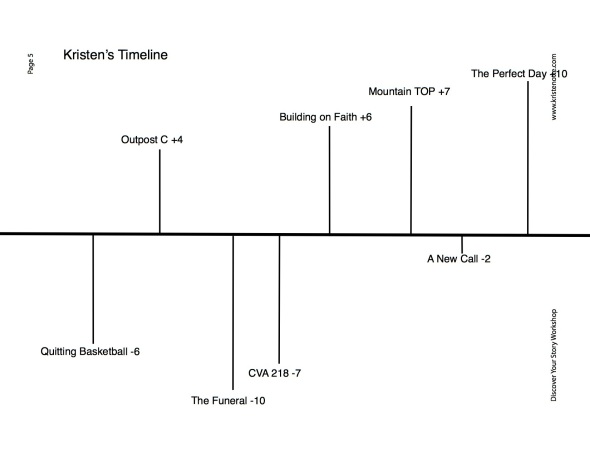Happy New Year Friends! It's the time of year when people review the past year and set goals for the new year. I set new goals and targets as I finish projects, but it's always beneficial to review the past year and look ahead. The magic number of writing projects I can handle currently (while working another job) is around four. So here are the four successes of 2012 and the next four projects for 2013.
2012 Successes
1. When Light Hits the Path
On January 4, 2012, I released When Light Hits the Path in kindle and paperback forms. When Light Hits the Path was in many ways an experiment for me. I wanted to learn about the self-publishing process. The best way for me to learn is doing something and learning along the way. I formatted my book for kindle, smashwords and paperback. I designed the cover. I experimented with marketing. And I went for it. Honestly, the process was fun and I learned so much. The feedback on the book was positive and I sold more copies than I expected in the first month. When Light Hits the Path is by no means a bestseller, but it was a great first work.
2. Finding Love and Laughter through Story - The Relaunch of KristenOtte.com
2012 was not my most consistent year of blogging. For the first half of the year, I struggled to write posts and find good topics. I didn't know the purpose of my blog or where it fit with the rest of my writing. However, when I finished the first draft of my novel this past summer, I realized the future direction of my writing was fiction. I researched and brainstormed the direction of KristenOtte.com in connection with my fiction writing. By the end of summer, I found my niche. Finding Love and Laughter through Story is the new tagline. The blog is a resource for readers, writers, and those who are looking to create a new story in their lives. Since the relaunch, traffic at my blog has increased, along with newsletter subscribers, twitter followers, and comments on the blog. Thank you!
3. Story Workshops
In 2012, I led my first story workshops. I love teaching, writing, and helping people find their calling and the story workshops combine all three! Discover Your Story is a great workshop for those who want to share their story through a memoir, blog, or other writing and speaking avenues. During the workshop, participants will identify their life shifts to map out the timeline of their story. Participants also complete a redemptive outlook exercise to find meaning in the negative life shifts and a theme to their stories. Live Your Best Story uses the elements of story such as concept, character, and theme along with the 7 Point Story Structure to identify a new trajectory for your life. By the end of the workshop, participants have a detailed roadmap to live a meaningful story. Live Your Best Story is geared for people in midst of transition- recent graduates, retirees, and those exploring a career change. I continue to refine the workshops and look forward to my opportunities to present in 2013. (see below!)
4. The Legend of Zelda
Finally, a big change in my household was the addition of Zelda the Pug to our family. It's amazing how much a small 12lb dog can change your life and habits. But, Brian and I love having her around in the house. I especially like the company at home when my husband is working. On the writing side, Zelda inspired me daily and I decided to create a short story series based on her character. Besides being tons of fun to write, The Legend of Zelda series engages readers with my fiction on the blog. The positive feedback on the series is encouraging and I look forward to developing her character in 2013. If you missed any of the first few stories, catch up here.
2013 Projects
1. The Reader's Handbook
The Reader's Handbook is a resource for readers. In this handbook, I explain why reading is important and beneficial. I also outline the genres of books and help find the right books for you. I make sense of ebooks and print books, self-published books, and traditionally published books along with reading apps for your tablet, using the local library and the website Goodreads. Finally, I share tips and tricks to improve your reading speed and comprehension. The Reader's Handbook will be available early this year (late January or February) and is available only to newsletter subscribers (so if you aren't reading this through my mailchimp email newsletter, you should sign up now to get it!)
2. The Legend of Zelda Collection
The Legend of Zelda short story series will continue into 2013. In 2012, I released 3 stories, one a month, starting in October. I will release one Zelda story each month for the next three months as well. These six stories, along with six more Zelda stories will be self-published in a Legend of Zelda collection this spring. I'm aiming for an April release and super excited about it!
3. The Novel
Writing a novel is a long process. The first draft is complete, along with my first round of beta readers (Thanks Sarah & Jenny!!). My beta readers were extremely helpful, so the next stage is serious revisions in the next few months. After these revisions, the novel goes back to beta readers. Once my revision stages are complete, I plan on querying this novel to agents. But if agents don't bite, I probably will self-publish. The timeline on this project is very fluid, but in a perfect world, I would start querying in the summer of 2013.
4. Story Workshops
My goal in 2013 is to lead at least one story workshop per month. I am teaching the workshops in conjunction with local city recreation departments starting in March. In addition, I am scheduling my story workshops at local churches and looking into other possible venues. The Story Workshops are a great way to get my name out there, sell some books, and help people. If you are interested in participating in the workshop or hosting, read more about the workshops here and contact me with any questions.
Those are my four writing successes from 2012 and four writing projects for 2013.
What were you up to in 2012?
What are your 2013 writing or reading projects?
Finally, I will be taking entries for the December Book giveaway until Sunday January 6th. Read how you can win a copy of Erin Morgenstern's The Night Circus here.
 Friday Night Lights is one of my favorite television series. I was a latecomer to the series, catching the entire series for the first time on Netflix a couple of years back. But, I loved it and couldn't stop watching. So, a couple of months ago, I started watching the series again from start to finish to see if it holds up after a second viewing. It does.
Friday Night Lights is one of my favorite television series. I was a latecomer to the series, catching the entire series for the first time on Netflix a couple of years back. But, I loved it and couldn't stop watching. So, a couple of months ago, I started watching the series again from start to finish to see if it holds up after a second viewing. It does.
